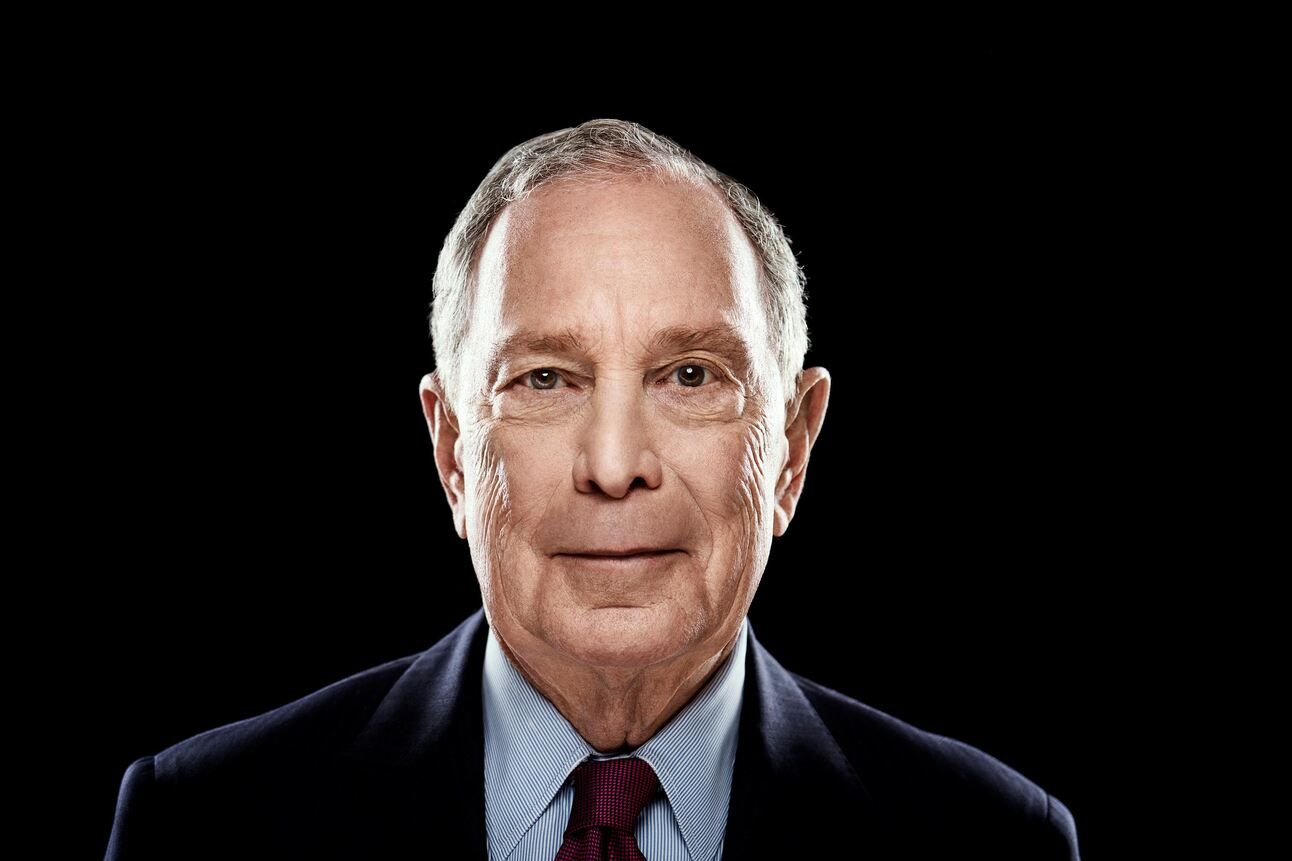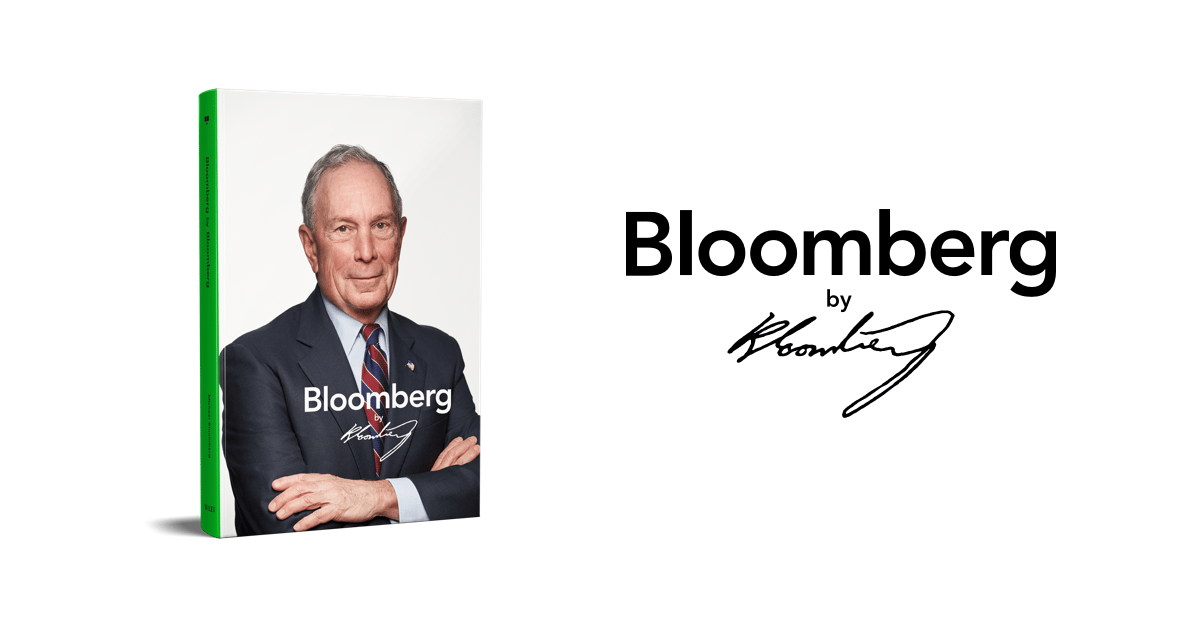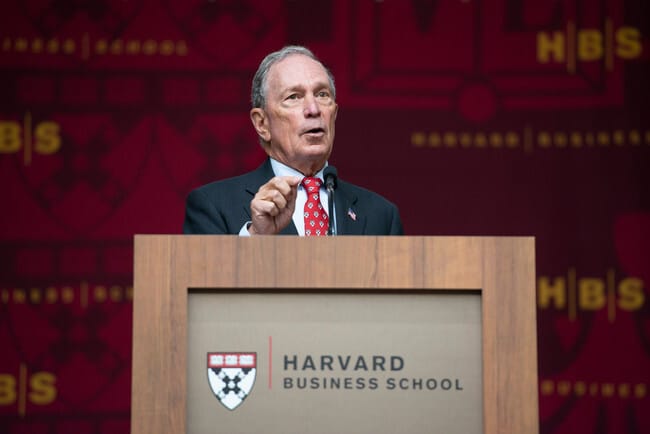- The Weekly Mensch
- Posts
- The Weekly Mensch: Michael Bloomberg
The Weekly Mensch: Michael Bloomberg
An eponymous career of meaningful revolutions and public service grounded in rationality, duty, and true entrepreneurship
Us in a Nutshell
We are passionate about the lives, the impact, and the experience of Jewish baby boomers who have changed our world. From finance to the arts, we write about the stories of contemporary heroes who — significantly and meaningfully — changed the face of their respective industries, often starting with nothing but a legacy of exile. We tell their stories for the timeless lessons of intelligence, ethics, and resilience they underline. And we also share some fun anecdotes! Nathan Tob is a fourth-year student at the Queen Mary University of London. He studies Economics, Finance, and Management. Davy Sokolski is a third-year student at Columbia University in New York. He studies International Political Economy.
What is a Mensch?
Leo Rosten defines mensch as “someone to admire and emulate, someone of noble character.” Dr. Saul Levine writes in Psychology Today that a mensch’s personality characteristics include decency, wisdom, kindness, honesty, trustworthiness, respect, benevolence, compassion, and altruism.
Michael’s Rapid Bio

Credit: CNN
Michael Rubens Bloomberg, born on February 14, 1942, in Boston, Massachusetts, grew up in a middle-class Jewish family that valued education and hard work. His father, William, worked as a bookkeeper, and his mother, Charlotte, instilled in him a deep sense of philanthropy. Raised in Medford, Massachusetts, Bloomberg excelled academically and earned a degree in Electrical Engineering from Johns Hopkins University in 1964, followed by an MBA from Harvard Business School in 1966.
Bloomberg began his career at Salomon Brothers, where he quickly rose to partner before being let go during a restructuring in 1981. With his $10 million severance, he co-founded Bloomberg L.P., revolutionizing the financial industry with the Bloomberg Terminal, a groundbreaking tool that transformed how professionals accessed and analyzed market data. Today, Bloomberg L.P. is a global financial and media powerhouse.
In 2001, Bloomberg entered public service as the Mayor of New York City, serving three terms until 2013. He championed data-driven governance, improving public health, education, and infrastructure while steering the city’s recovery post-9/11. Known for initiatives like anti-smoking campaigns and bike-sharing programs, his leadership left a lasting impact on urban innovation.
A dedicated philanthropist, Bloomberg has donated over $12 billion to causes such as climate change, public health, and education. His $1.8 billion gift to Johns Hopkins University remains the largest donation to a U.S. educational institution. Through Bloomberg Philanthropies, he continues to champion global change, from combating tobacco use to funding clean energy initiatives.
Michael Bloomberg’s legacy is a testament to innovation, resilience, and a commitment to using his success to address some of the world’s most pressing challenges. His life reflects a dedication to building tools, systems, and policies that empower others and create lasting global impact.
Michael’s Five Lessons
1. Innovate to solve real problems
Michael Bloomberg’s success story begins with a simple observation: the financial industry lacked a way to access real-time, reliable market data. While working at Salomon Brothers, Bloomberg noticed how inefficient and opaque the flow of financial information was, creating delays and missed opportunities. When he was let go from the firm in 1981, he seized the chance to address this problem. Using his severance package, he developed what would become the Bloomberg Terminal—a groundbreaking system that delivered real-time market data to investors. What started as a modest innovation transformed the financial world, enabling professionals to make informed decisions quickly and effectively. Bloomberg once said, “I've always believed the best ideas come from solving real problems.” This principle drove the success of his enterprise and his ability to disrupt the industry.
Bloomberg’s story highlights an essential truth: innovation is not about flashy ideas or following trends—it’s about solving pressing, real-world challenges. His example reminds us that the most transformative ideas often arise from observing inefficiencies, questioning the status quo, and creating tools that genuinely make life better.
2. Data-driven leadership delivers results
Michael Bloomberg’s approach to leadership has always been rooted in data. As Mayor of New York City, he transformed governance by prioritizing measurable outcomes over rhetoric. One example was his pioneering use of data to combat crime through the CompStat system, which tracked criminal activity in real time, enabling targeted responses. This innovative approach led to a significant drop in crime rates and became a model for cities worldwide. Bloomberg applied the same rigor to issues like public health, using statistics to justify bold initiatives such as banning trans fats and launching anti-smoking campaigns that improved the health of millions. For Bloomberg, numbers weren’t just figures, they were the foundation for effective decision-making.
Bloomberg’s legacy underscores the power of data to drive impactful change. Whether in business, politics, or everyday life, relying on evidence and measurable results ensures decisions are grounded in reality rather than emotion or speculation. His story is a reminder that when we embrace a data-driven mindset, we not only increase our chances of success but also build trust, credibility, and meaningful outcomes in the process.3. Design the clothes you want to wear
3. Adapt to adversity
Michael Bloomberg’s career is a testament to the power of adaptability in the face of challenges. In 1981, after nearly 15 years at Salomon Brothers, Bloomberg was unexpectedly laid off when the firm merged with Phibro Corporation. At the time, he was left without a job but not without ambition. Rather than dwell on the setback, he used his severance package to start Bloomberg L.P., a venture that would revolutionize the way financial data was delivered. Recognizing the inefficiencies in the financial industry, Bloomberg adapted to the changing landscape, channeling his expertise into creating the Bloomberg Terminal—a tool that provided real-time market data and analytics. What began as a response to adversity grew into one of the most influential companies in the world, reshaping the financial industry and solidifying Bloomberg’s legacy as an innovator.
Adaptability isn’t just about survival, it’s about using challenges as a springboard for growth. Bloomberg’s story teaches us that setbacks can be the starting point for our greatest achievements if we approach them with resilience and vision. Life’s obstacles are inevitable, but by staying flexible and focusing on solutions, we can turn adversity into opportunity and forge paths to success that might not have seemed possible before.
4. Philanthropy is a responsibility, not an option
Michael Bloomberg’s approach to wealth reflects his deep conviction that success carries an obligation to give back. As one of the world’s most prominent philanthropists, Bloomberg has donated billions to causes ranging from public health and climate change to education and the arts. One striking example is his $1 billion commitment to combat tobacco use through the Bloomberg Initiative, which has saved millions of lives globally by promoting anti-smoking campaigns and funding cessation programs. Bloomberg once said, “The measure of a civilization is how it cares for its most vulnerable members,” a belief that has driven his philanthropy to focus on solving global challenges and uplifting those in need.
Bloomberg’s generosity is not just about writing checks—it’s about solving problems and creating lasting change. His contributions aim to tackle systemic challenges, leveraging data and strategic partnerships to maximize impact. This approach underscores an important lesson: philanthropy isn’t a luxury for the wealthy but a responsibility that comes with the power to make a difference. In our own lives, giving back—whether through resources, time, or expertise—is a way to align personal success with a broader purpose, ensuring that our achievements benefit not just ourselves but the world around us.
5. Think global, act local
Michael Bloomberg’s career exemplifies the principle of addressing global challenges through local action. His leadership as Mayor of New York City transformed the metropolis into a global model for urban sustainability and public health. One of his most impactful initiatives was the ban on smoking in public places and the introduction of calorie counts on restaurant menus. These policies, initially controversial, not only improved New Yorkers’ quality of life but also set a precedent that inspired cities worldwide. Similarly, his global climate initiatives, like C40 Cities, empower local governments to combat climate change through actionable, localized strategies.
Bloomberg’s philosophy teaches us that meaningful change starts at the community level, even when addressing global problems. Whether in business, leadership, or personal growth, focusing on small, actionable steps in our immediate environment can create ripple effects that lead to broader impact. By thinking globally but acting locally, we can ensure that our efforts are both scalable and deeply rooted in the realities of the world we wish to change. As Bloomberg himself has said, “Progress is made when you do something—not just talk about it.”
The Quote of The Week
“You can’t sit there and worry about everything”



Reply